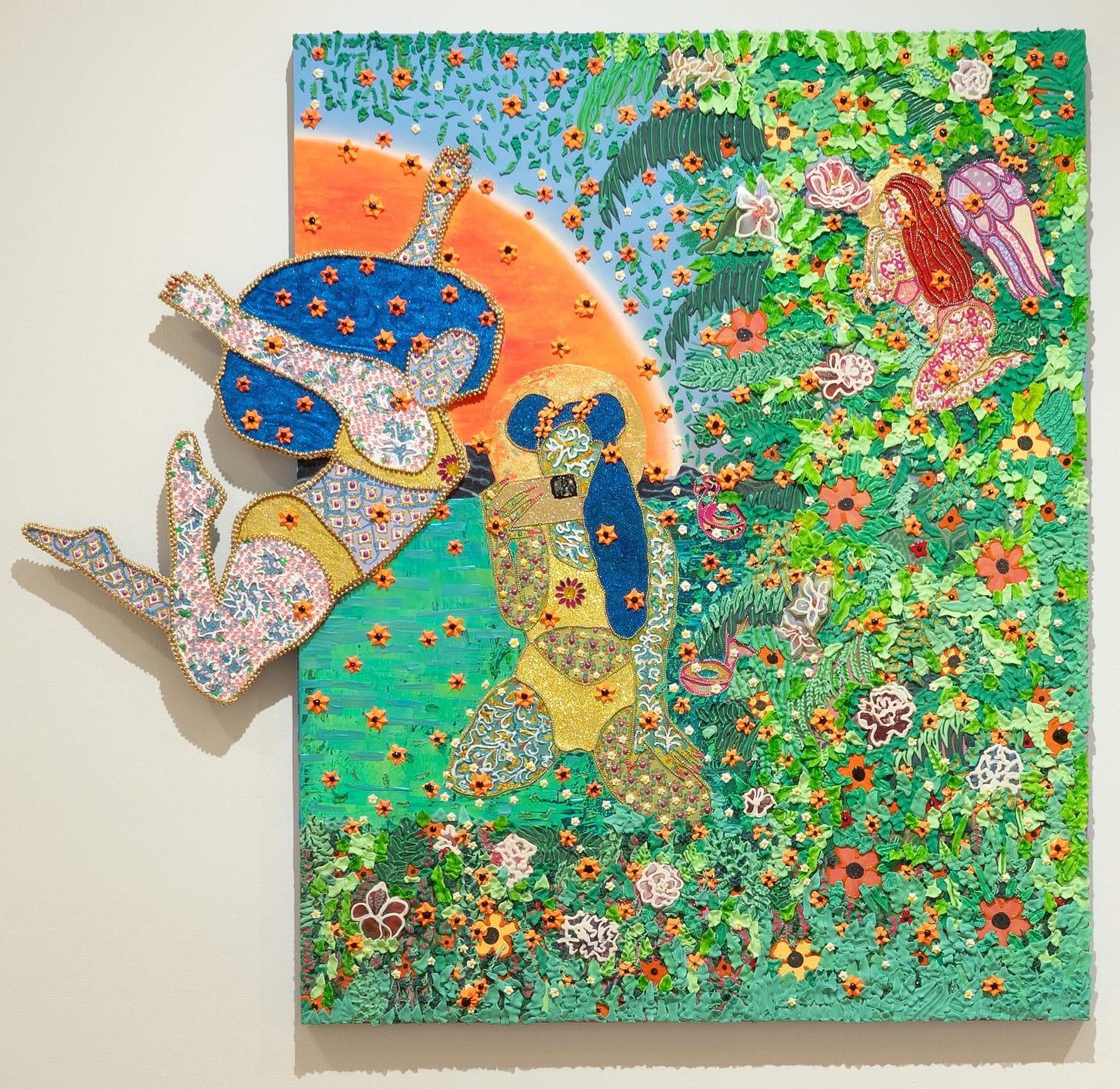Coming to life
Reclaiming body and spirit: From Orozco's "Gods of the Modern World" to "On Her Terms" at Fitchburg Art Museum

Two summers ago, in the midst of a decluttering campaign intending to turn my office into a nest, I found a letter from an old journalist friend. I followed the lead and dialed her up. She answered. By the end of the conversation, my life’s purpose had changed.
“Some kind of dam broke in my soul. I realized I can no longer identify as a journalist,” I wrote. “I have been doing my job as if in a dry little town beside a dammed up river. The river is the divine feminine: The wisdom of the body, love and touch, intuitive knowing and the way life rhymes; healing and confluences and connecting. Sensing and knowing in ways that cannot be fact-checked, and witnessing with clarity my own subjectivity. In the dry little town, objectivity objectifies. Indeed, the ever-changing mystery of my own subjective experience is the divine feminine.
“As an art critic in this dry town, I have had ways to tap the dam and hydrate. But it hasn’t been enough. The dam has broken and the town is flooding.”
This particular archetypal framework feels right for me. It won’t fit everyone; we all have to find our own. To me, the feminine archetype embraces pleasure, bodily experience, intuition, right-brain knowing, and receptivity. It’s divine because it puts me in touch with wisdom beyond me and helps me cede my iron fist of control.
It’s not the norm in our culture – and after all, we’re all just trying to fit in. But yikes! Society molds us with a bludgeon and with varying degrees of terror, depending on the privilege and safety each of us is raised in (and mine was quite good). We are not taught to attune to our own precious selves, and so we grow up with great fields of numbness. I’ve been practicing embodied awareness for more than 25 years, and I still find myself waking up every day to some new revelation.
And for crying out loud, my body has been there all along! The intuitions, the whispers, the depths of knowing, the safety and comfort. The aches and delights. If I’d only known to pay attention, to value them, to listen to them, to name them.
I love journalism, and the ways of thinking it represents support the consensus reality for good reason; we need to agree on many things to function together. But you can’t fact-check intuition, creative process, faith, hope, or love. Nor can you write about it objectively.
“Objectivity,” my journalist friend said to me as we spoke that day, “crushes reporters’ souls.”
I sat silent, sensing. Then I whispered: “I can’t be a journalist anymore. I am a practitioner of the divine feminine.”
Keep reading with a 7-day free trial
Subscribe to Ocean in a drop to keep reading this post and get 7 days of free access to the full post archives.



